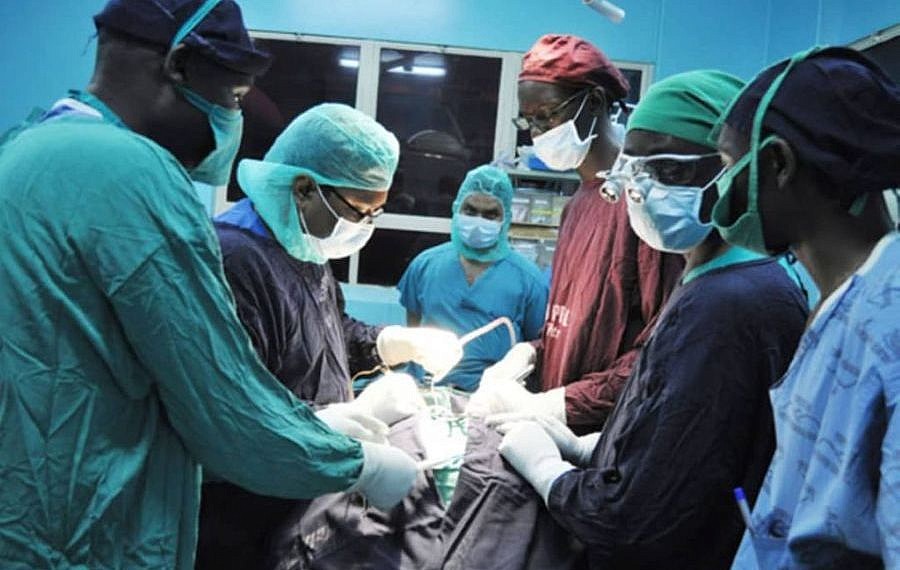Uganda’s organ transplant program has taken a giant step forward with Mulago National Referral Hospital successfully performing four kidney transplants in one week.
These also included the country’s first-ever pediatric kidney transplant.
Speaking to journalists on Monday, Dr. Peace Bagasha, the lead nephrologist, noted that the transplants were conducted between July 14 and July 18, marking the third round of transplants at the hospital since the program began in December 2023.
“This week has been a milestone,” she said, revealing that a total of nine transplants have now been performed locally.
“We had our youngest and oldest recipients so far a 16-year-old girl and a 70-year-old man.”
The 16 year old received a kidney from her 24-year-old brother, while the 70-year-old man was donated a kidney by his 43-year-old sibling.
Two other patients aged 23 also received organs from close family members.
“This progress is the result of rigorous patient selection and pre-transplant care,” Dr. Bagasha said.
Dr. Frank Asiimwe, the lead urologist and transplant surgeon, celebrated the shift from occasional to regular transplants.
“This marks the beginning of the third phase of our program Ugandans being transplanted in Uganda by Ugandans,” he said.
“Transplants that used to be rare or dependent on foreign expertise are now becoming a regular part of our national health system.”
Dr. Asiimwe acknowledged the critical role played by earlier collaborations with Ghanaian and Indian teams, and praised the recent support from the UK-based NGO, Kidney Care for All.
“This team trusted us and allowed us to run the operations independently, though with light supervision. That trust is what helped our team grow.”
He noted that every part of the hospital from imaging and laboratories to nursing and anesthesiology was engaged.
“This time, we did not rely on outsiders. Our people harvested the kidneys, our people implanted them, and our people cared for the patients afterwards,” he said, highlighting the maturity of the surgical and medical teams.
Dr. Asiimwe revealed that another transplant session is scheduled for October or November this year, with the goal of ramping up to bi-monthly or even weekly transplants by 2027.
He also called for a national conversation around deceased organ donation, which remains taboo in many Ugandan communities.
“There are many kidneys being buried that could save lives,” he said. “We must start walking this path gently, but surely.”
Mulago’s Executive Director, Dr. Elizabeth Byanyima, revealed that the hospital, is now aiming to make kidney transplantation a routine procedure by 2027, with a goal of performing at least one transplant session every four months.
“This milestone is not just about numbers,” she emphasized.
“It’s about saving lives in a sustainable way. What used to take us a year to prepare now takes us a few months. We’re on track to meet our target for this financial year.”
She applauded government and development partners for their ongoing support.
“The Ministry of Health helped link us to Kidney Care for All, and our teams have gained practical experience abroad. The skills transfer has been amazing.”
Byanyima, also called attention to often-overlooked contributors.
“Support services, from water and power management to food and sanitation, play a crucial role. When anything fails, even the best surgery cannot proceed.”
Uganda currently has more than 400 dialysis patients who are eligible for kidney transplants.
According to Dr. Bagasha, many cases of kidney failure stem from preventable causes such as severe malaria.
She emphasized the need for both prevention and better post-operative support. “
These patients need isolation to prevent infections,” she cautioned. “And they need financial and emotional support from family and friends, especially during the months-long recovery period.”
Dr. Ronny Bahatungire, Commissioner for Clinical Services at the Ministry of Health, said the success at Mulago is helping to reduce the country’s dependency on expensive referrals abroad.
“Out of every 10 medical referrals Uganda makes to foreign hospitals, four are for kidney transplants,” he said.
“Each referral costs the country at least $25,000, excluding travel and accommodation.”
He added that the newly established Organ Transplant and Donation Council will soon be operationalized to regulate local transplants and guard against unethical practices.
“Let us reassure the public there will be no illegal organ harvesting,” Dr. Bahatungire said. “The council will oversee everything.”
He urged the media to help shift public perception.
“Yes, the service is here, but prevention remains the best cure. We must tackle the causes of kidney failure, not just treat it.”
As Uganda moves closer to routine organ transplant services, the medical community is optimistic. With growing expertise, improved infrastructure, and committed partnerships, the country is firmly on the path to self-reliance in complex organ surgeries.




